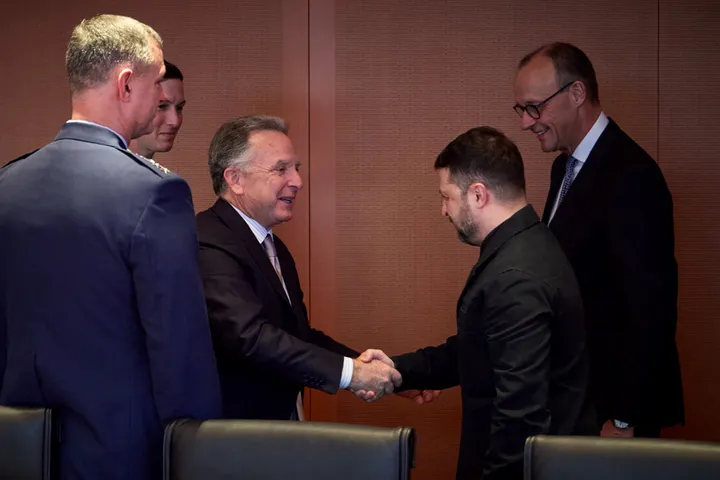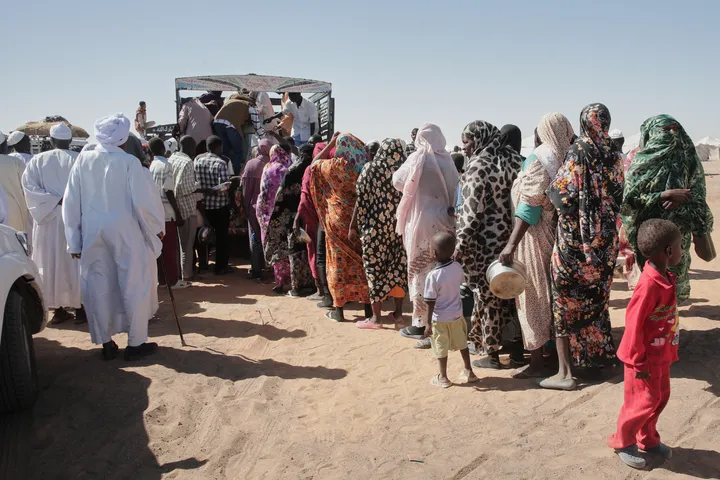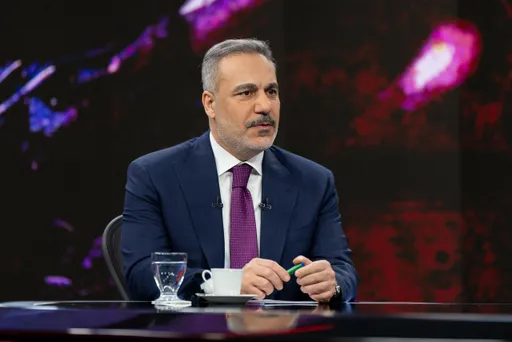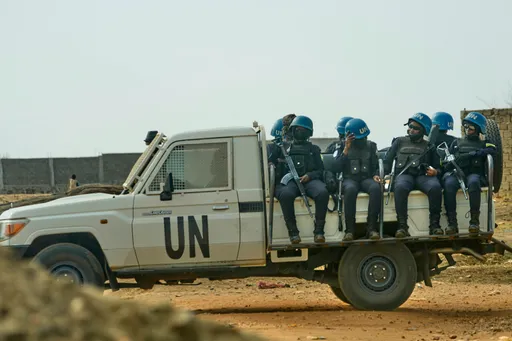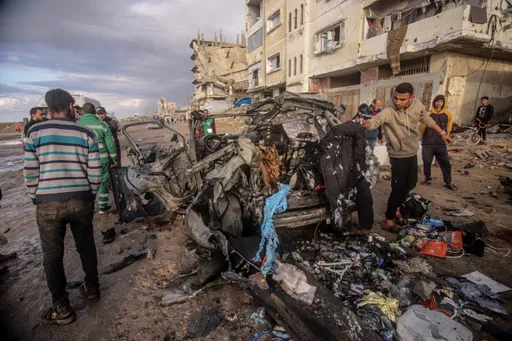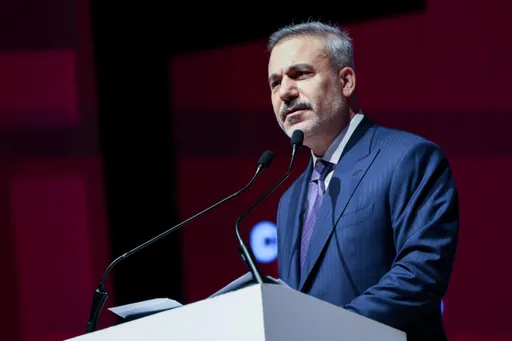Iranian director Sadaf Foroughi’s film Ava is screening at the ongoing Istanbul Independent Film Festival. Ava has been selected by the Canadian Academy as Best First Feature and has been nominated in eight categories for the 2018 Canadian Academy awards. It tells the story of a teenage girl in Tehran who bets with her friends she can go on a date with a boy. Soon after her first date, the film focuses on the trauma the girl suffers as her mother takes her to gynecologist to ensure she’s still a virgin.
Foroughi, 40, who now lives in Montreal, spoke to TRT World about her film and her influences.
You wrote and directed "Ava," the story of a young girl’s life slowly falling apart in current-day Tehran. What inspired you to come up with this story?
Sadaf Foroughi: For all filmmakers, when they start to write their first feature, the subject is very personal. Ava is very inspired by what I, at least, observed during my years in Tehran.
You were born in Iran and now live in Canada. Can you tell us about your experiences growing up? When did you move overseas? How did your life change?
SF: I love Iran. It’s my origin country, of course. I left Iran when I was 19-20 years old and I went to France to study art. I started with visual arts first, and then I went to the cinema department. Finally, for my PhD, I finished my studies in the philosophy department in Aix-en-Provence, which was wonderful. Until now I can say I’m very inspired by art in general and [especially] by French cinema, [which] I grew up [on] because I lived in France for ten years. It was in 2009 that I decided to, once I finished my studies, to come to Montreal. Basically I’m a French-speaker and I love Montreal. So I have three countries, I can say. In Canada I’m very happy, because I feel safe and secure. I feel there is a place for me to develop my ideas, I have support and I feel very good here.
How was it, shooting a film in Iran as an Iranian filmmaker living abroad?
SF: I guess … I didn’t have … It wasn’t a question of because I wasn’t living in Iran it was difficult. I guess the process is more or less the same for everyone. You have to ask for permission; sometimes they accept the script, sometimes not. In my case, at first they didn’t accept the script. Then finally they did accept it.
We [made] changes of course, but we didn’t change the film – we changed some parts to get the permission. Maybe the difficult part, since I don’t live there, is that you don’t know people who know the rules and regulations of how they can go through the – if I can say– black market to have the permission et cetera.
I was very honest; I went there and I gave them my real script and I didn’t have any ... I wasn’t welcome. I don’t want to think that it’s because I don’t live there anymore or maybe it’s because normally we don’t want to think about these things. Because I love Iran and it’s my country, but maybe it was the reason, I don’t know.
The creation process was wonderful. We didn’t have lots of money at all. The film was shot in 19 days. The people were very creative. We helped each other. I did lots of things, not only directing, I cleaned everywhere; we did everything, basically. They are all professionals, [even though] they are young. I’m very happy. The creation part was wonderful.
How were you able to communicate social and political perspectives in Iran in your film for a Western audience?
SF: I have to say that I’m honestly not interested in politics at all. I think politics is only for the politicians. As an artist, if I may say, my idea was just to tell a story, a story that I think is very important to tell because they’re our stories. You see a big part of me in Ava and in other women’s lives in Iran. We should talk about it, we should [start] debates on the taboos that we still hide. That was the idea.
But I didn’t want to make a social film at the same time, because as you beautifully said, yes I wanted that also other audiences from other countries be able to communicate with the film and I believe how we can do that is not reduce people on their social activity.
You know if you make a social film it’s [of that moment]; we say the film is like the news; it has an expiration date. When you make an existential film, the film has a longer life; when you talk about doubts, the fears, the mother, the child, the relationship between people, between members of family ... These are the questions that are very universal. And I’m happy when I see that even audiences in Canada or in Sweden, they see themselves somehow in the characters, since these questions are very universal.
The film could have been a Chekhov story. It could also have been called “The Bet”. (But there’s already a Chekhov story called "The Bet," and it’s about something else entirely.) Do you think your film is specific to a time and place, or does it have universal appeal?
SF: I really wanted to make a universal film because I think the questions that we have to ask ourselves as artists must be more existential, must be more profound, than social events in Iran today. That’s why I tried to combine my life from 20 years [ago] and the life of an adolescent nowadays in Iran and also an adolescent in Canada. I observed them all, and I see that they have all the same crises. Adolescence is a very difficult age, right?
I tried to have a film with a universal message. I had this visual idea for the film to even go to the universal vision. I read [Russian playwright and short story writer Anton] Chekhov, of course, [Swedish playwright, novelist, poet, essayist and painter August] Strindberg. I watch [Swedish director Ingmar] Bergman films, I watch [Turkish contemporary director] Reha Erdem films which I love – I love Turkish cinema which is really wonderful – [Turkish contemporary director and photographer] Nuri Bilge [Ceylan] of course, and [Iranian director Abbas] Kiarostami at the same time. You can even see [traces of the Master of SuspenseAlfred] Hitchcock in Ava and I will tell you my secret in the film, how it’s related to Hitchcock.
There’s lots of references to other films, and to French films also like Maurice Pialat’s A Nos Amours (To Our Loves) or Les Quatre Cents Coups (The 400 Blows) by Francois Truffaut. These are the references, the visual references also, from the impressionists to photographers like Jeff Wall from Canada. I tried to use all these pictorial and visual references to make the film more familiar to audiences other than Iranian audiences.
What are your influences, literary or filmic?
SF: The music that I use in the end credits and title is Henry Purcell that has been used in Maurice Pialat’s A Nos Amours and this film is about an adolescent. I was very inspired, but Ava is very different of course. But I want to say I used all these references. And Hitchcock. I love these references, I’m excited to share it with you!
Hitchcock has a film called Rear Window and there is a man who has a broken leg and who is an onlooker looking at other people’s secrets. This is why Anna in the film has a broken leg. She’s an onlooker.
I’m a cinephile before I’m an artist or a filmmaker. I love using and having these references in my film.
The main character in the film goes through a lot of trauma, which is a result of social pressures she's facing. From an artistic perspective, is her ordeal a byproduct of Iran's conservative political system?
SF: I guess – no. I think this a habit for Iranian and all the people around the world: All the time we say the government is the responsible of our unfortunate life. But I guess it’s more traditional. That’s why I put this family question; the relationship between mother and daughter. I guess it’s the same in Turkey. If we want to change we have to start changes from ourselves.
Of course we have a palette of political and social issues, of course. But I think we have to go deeper than that. Because if we have the government as it is, it’s why because we have some ideas that the government is there. You know we are all related. So I think if we want to change anything we have to start the changes from ourselves.
Without giving too much away, do you think the outcome of the film could have been different? How?
SF: It is not a very happy ending, yes, I agree, but I think that’s why it’s because I don’t see any happy end actually in these kinds of relationships or communication, I guess. It can’t work very well; it can’t help anybody.
At the same time, the last frame is a reference to Manet’s Olympia. I don’t know if you had watched the tableau, the picture, the painting of Manet’s Olympia. It’s one of the important paintings in that era. Why? Because a woman looks directly, a woman who’s nude, looks directly at the audience. In the 18th century it was something that was very surprising and shocking.
Ava’s looking at the spectator and saying, “Well, my parents decided for me but now I’ll decide for myself.” It’s a very strong decision; it’s not an easy decision. I think Ava has grown up suddenly in the 103 minutes of the film, [from] a child who [made a bold] bet for a boy et cetera. Suddenly she sees that there’s nothing else that she can [rely] on you know. So she decides to go on her way.
Maybe it is not a very happy ending, but at the same time if a woman decide to go for herself, fight for her life as we see that she is very decisive. It’s a strong and even a – not [necessarily] happy – but positive ending. At least for me, but I respect your idea too.
And at the same time, we can say if the film [were to continue] when Ava decides to go her way maybe her parents [would] also decide to have other relations with her and be just like a mother and father. They love Ava very much, in their own way, but if Ava decides not to go to school maybe they [would] think twice and see “Well, this is [what] the new generation wants.”
Ava is all about the conflict between the two generations. A generation of revolution and the generation after the revolution in Iran. So I think it has a – at least for me – it has a strong message.


